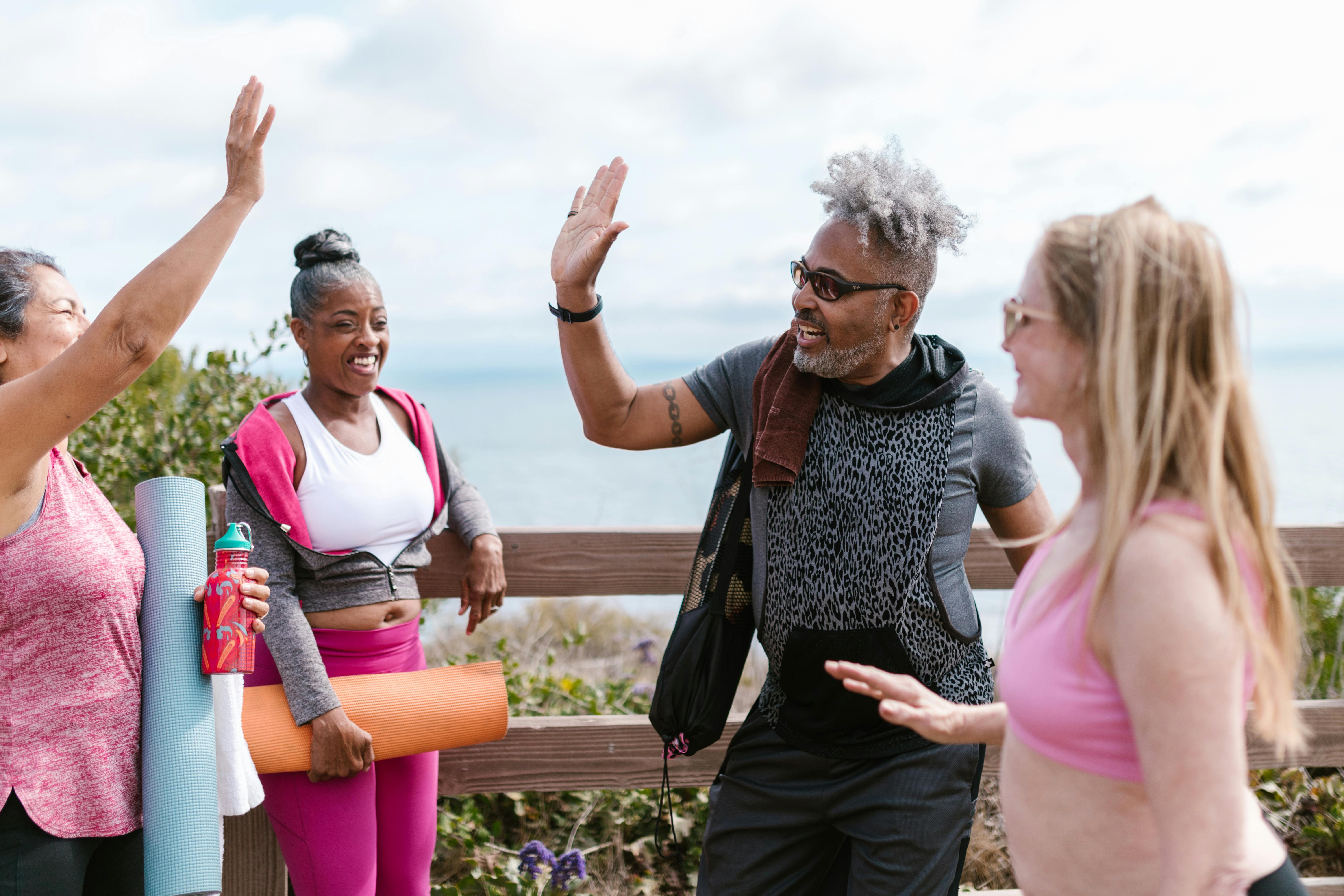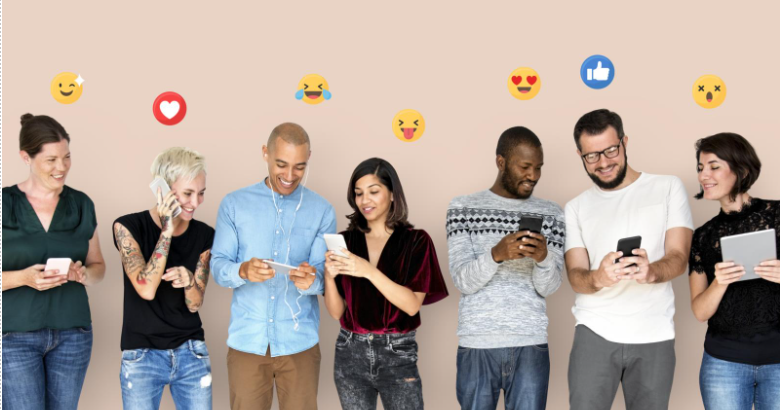
Social Wellness: Why Making Friends is Key to Better Mental Health
Discover how building meaningful friendships and boosting your social wellness can lead to stronger mental health, more joy, and lasting emotional resilience.
In today’s increasingly connected yet often isolating world, our mental health is more influenced by our relationships than many of us realise. The concept of social wellness – our ability to form satisfying interpersonal relationships and interact within communities – has become a key pillar of holistic well-being. It’s not just a feel-good add-on; it’s central to a healthier, happier life.
Making friends, building emotional support networks, and participating in communities are vital for fostering resilience, reducing stress, and improving mental health outcomes. Let’s explore the transformative power of social wellness and how you can nurture it.
What is Social Wellness?
Social wellness refers to the quality of our interactions with others and the strength of our social support systems. It encompasses everything from our friendships, romantic relationships, and family bonds to our participation in broader community groups.
Achieving social wellness means being able to build and maintain positive relationships, communicate effectively, set healthy boundaries, and feel a sense of belonging. According to various studies, individuals with strong social ties are not only happier but also tend to live longer, have stronger immune systems, and experience lower rates of anxiety and depression.
It interacts with other dimensions of wellness – such as emotional, occupational, and physical health – and when one area is neglected, it often affects the rest. So, prioritising your social life isn’t a luxury – it’s essential.
Mental Health and the Power of Connection
Let’s be honest: life gets tough. And when it does, having a friend to talk to can make all the difference. Research consistently shows that people with strong social connections are better equipped to deal with life’s challenges. Emotional support from trusted friends fosters resilience, helping individuals process their experiences and find healthier coping strategies.
When we make friends, we aren’t just sharing laughs or grabbing coffee – we’re building a network of people who understand us, support us, and help us navigate life's complexities. As we open up and share our struggles, it eases our emotional burdens and validates our experiences. This act of vulnerability and empathy is at the core of both good mental health and social wellness.
Psychologists have long pointed to the role of emotional intelligence and compassion in healthy relationships. Empathy, trust, and communication are critical for maintaining these bonds, and developing these skills helps us support others while also receiving the support we need.
Make Friends: The Lifelong Gift to Your Well-being
It might sound simple, but the phrase "make friends" holds profound significance. Across all life stages – from childhood to our senior years – friendships shape our development, happiness, and even our longevity.
- In childhood, friendships help us develop social skills and emotional awareness.
- In adolescence, they foster a sense of identity and belonging.
- In adulthood, they become a critical source of support and joy amidst life’s pressures.
- In older age, friendships help combat isolation and keep our minds sharp.
Yet, many adults find it difficult to make new friends. Modern life, work pressures, and digital distractions often get in the way. But meaningful social wellness doesn’t require a huge circle of friends; it’s about the depth, not breadth, of your connections.
One way to make friends naturally is to engage in shared activities. Whether it’s joining a book club, attending a yoga class, or going for a local walk, doing things you love alongside others makes it easier to bond. Platforms like Bunchups are designed to facilitate these kinds of connections through small, interest-based gatherings that promote genuine, lasting relationships.
Loneliness and Social Disconnection: A Growing Concern
Loneliness is not just a personal problem – it's a public health issue. A study by Swinburne University revealed that 1 in 4 Australians feel lonely, and it's linked to serious mental health risks like depression, anxiety, and suicidal ideation.
Overcoming loneliness starts with acknowledging it and taking small steps to reach out. Peer support groups, community events, or one-on-one chats can make a world of difference. It’s here that social wellness becomes a lifeline, guiding individuals from isolation to connection.
How Social Wellness Boosts Mental Health
The benefits of social wellness go beyond emotional support. Let’s unpack some of the key mental health perks:
- Reduced stress: Sharing your worries lowers cortisol (the stress hormone) and helps you feel calmer.
- Improved mood: Social interaction releases oxytocin and dopamine, the body’s natural mood boosters.
- Better self-esteem: Feeling valued in your relationships increases your sense of worth.
- Cognitive health: Especially in later life, social interaction helps stave off memory loss and cognitive decline.
Even short interactions – like a chat with a barista or a wave to a neighbour – contribute positively. Every bit of connection counts.
How to Set Social Wellness Goals
Improving your social wellness doesn’t mean you need to become a social butterfly overnight. It’s about meaningful intention. Here’s how to get started:
- Schedule catchups: Put regular coffee dates, video calls, or walks with friends into your calendar.
- Join interest-based groups: Platforms like Bunchups let you discover and host small gatherings based on your passions – whether that’s cooking, fitness, or gaming.
- Volunteer: Helping others is a powerful way to connect and boost self-esteem.
- Reflect on your needs: Do you recharge alone or with others? Are you looking for one-on-one chats or group settings? Tailor your social goals accordingly.
The key is to treat your social life with the same importance as exercise or diet. A small shift in focus can make a lasting difference.
Technology: A Double-Edged Sword
In our hyper-connected world, social media has redefined how we interact. On the one hand, it keeps us in touch with distant friends. On the other, it can lead to surface-level connections that lack emotional depth.
Use technology to enhance, not replace, your in-person experiences. Join online communities with the aim of eventually transitioning to real-life interactions. For example, Bunchups allows people to connect digitally but encourages them to meet in real life for meaningful social wellness gains.
Cultural and Societal Influences on Friendships
Friendships aren’t formed in a vacuum. Cultural values, family expectations, and social norms all influence how we form and maintain relationships. For example, collectivist cultures may emphasise loyalty and group cohesion, while individualistic cultures may prioritise independence.
Understanding these nuances helps us better navigate and appreciate our relationships, especially in diverse communities like Australia.
The Role of Peer Counselling and Support Groups
Sometimes, we need more than casual chats. Peer support groups and counselling networks offer structured, safe environments to share experiences. These settings promote empathy, healing, and connection.
Programs like Stride Mental Health provide access to professional and peer-based services across Australia. These services not only support individuals facing mental health challenges but also enhance social wellness by reducing isolation.
Bunchups: Helping Australians Connect Meaningfully
Imagine this: It’s Sunday afternoon. You’re in the mood for board games, but don’t want to play alone. Or maybe you're trying to stay motivated in your fitness journey but need an accountability buddy. That’s where Bunchups steps in.
Bunchups is a free platform that connects people based on shared interests for small, meaningful gatherings – not huge events or generic meetups. Whether it’s hiking, cooking, job hunting, or just chatting over coffee, Bunchups gives you the chance to meet like-minded individuals in your local area or online.
This focus on genuine interaction helps users rediscover the joy of real-world connection – turning everyday passions into lasting memories and strong friendships. With 19 activity categories, there’s something for everyone.
Try Bunchups to:
- Make friends through shared passions
- Combat loneliness and social anxiety
- Create a consistent habit of meaningful social interaction
Find out more or get started here: www.bunchups.com.au
Final Thoughts: Invest in Social Wellness Today
Your mental health is closely tied to your social wellness. When we make the effort to nurture friendships, show up for our community, and seek connection, we build a powerful support system that improves every area of life.
Start small. Send a message. Say yes to an invite. Try out Bunchups. Whatever your step looks like, take it today. Because behind every great day, there’s often a great friend.





